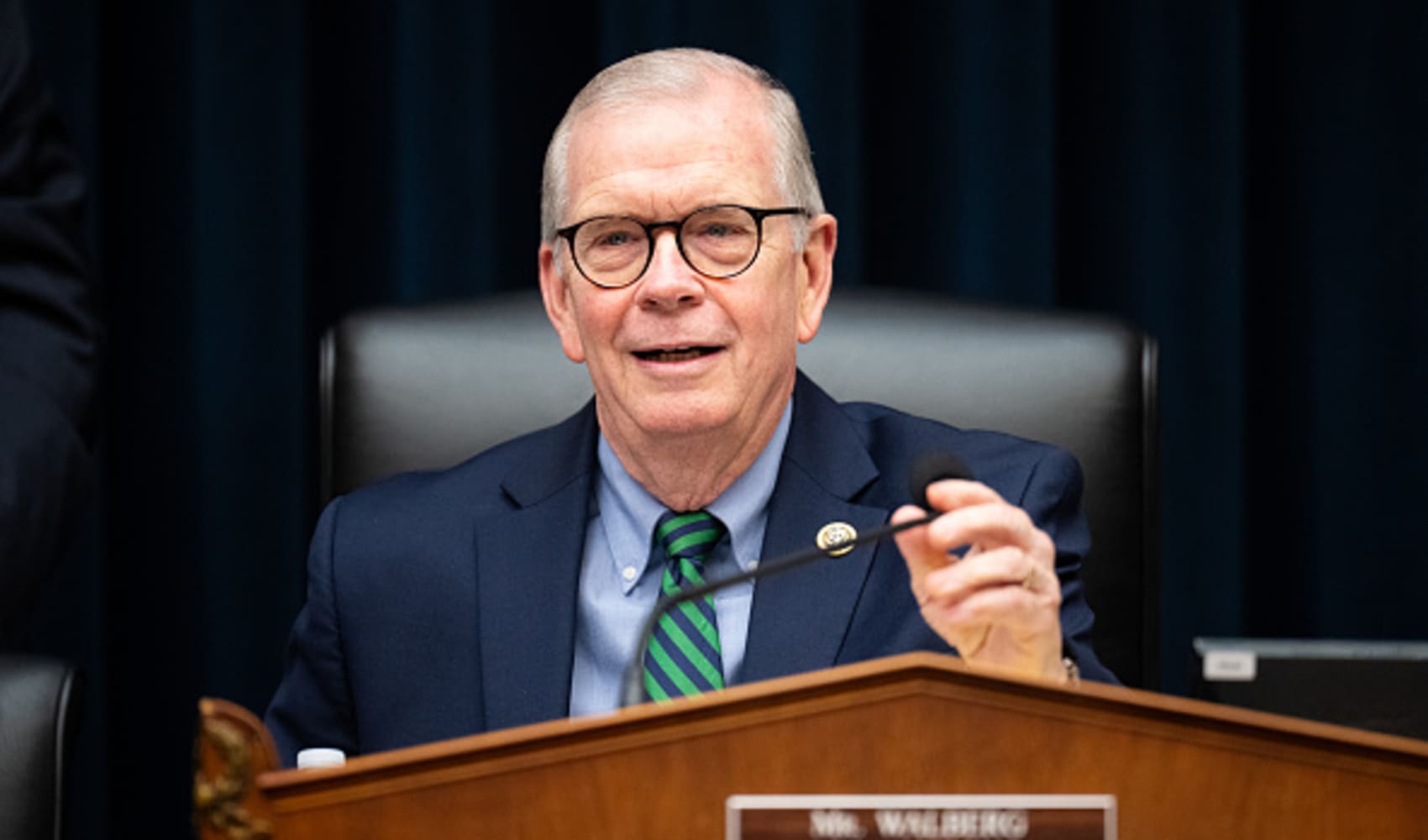
Traders work on the floor of the New York Stock Exchange on March 13, 2025.
U.S. Treasury yields continued to plummet on Friday, with 10-year Treasury yield earlier falling below 4%, after China retaliated against President Donald Trump's aggressive "reciprocal tariff" policy rollout, causing investors to flood into bonds for safety on fears of a global recession.
The 10-year Treasury yield dropped 4 basis points to 4.015%, hitting its lowest level since October. The yield had topped 4.8% earlier this year on hopes that Trump would rev up the U.S. economy with tax cuts.
Stream San Diego News for free, 24/7, wherever you are with NBC 7.
The 2-year Treasury yield shed 5.5 basis points to trade at 3.67%. One basis point equals 0.01%, and yields and prices move in opposite directions.
Federal Reserve Chair Jerome Powell said on Friday that he expects Trump's tariffs to raise inflation and curtail growth, noting that the central bank faces a "highly uncertain outlook" due to the new raft of levies announced this week.
Get top local San Diego stories delivered to you every morning with our News Headlines newsletter.
He indicated that policymakers are ready to stand pat on rates until they receive further detail on the impact of the tariffs.
"We are well positioned to wait for clarity before considering any adjustments to our policy stance. It is too soon to say what will be the appropriate path for monetary policy," Powell said in prepared remarks delivered before journalists in Arlington, Va.
China early Friday said that it would slap a 34% tariff on all U.S. good starting April 10 following Trump's blitz earlier in the week that would mean an effective rate on some China goods of as high as 54%.
Money Report
Investors have flooded into Treasurys for safety over the past few days, pushing yields lower, after Trump's tariff rollout was signed into effect on Wednesday evening. The plan, which set a 10% baseline tariff across the board, hit over 180 countries and hammered global markets.
"Clearly, the rally is about pricing in the trade war rather than last month's employment data," said Ian Lyngen, managing director and head of U.S. rates strategy at BMO Capital Markets. "If anything, this will galvanize Trump's negotiating stance and leave the Fed without much room to be dovish -- after all, the hard data continues to perform well."
The 10-year rate has tumbled since ending last week at around 4.25% on fears a trade war could raise prices and slow the economy into a recession.
JPMorgan late Thursday raised the odds of a recession this year to 60% from 40%.
"These policies, if sustained, would likely push the US and possibly global economy into recession this year," wrote Bruce Kasman, JPMorgan's chief global economist.
The federal jobs report released Friday showed a mixed picture of the labor market. Nonfarm payrolls rose by 228,000 in March, with the unemployment rate ticking up to 4.2%. Economists surveyed by Dow Jones had projected nonfarm payrolls to rise by 140,000, with an unemployment rate of 4.1%. Job growth data from previous months was revised lower.
Yields trimmed some of their losses for the session after the jobs report was released.
"Indeed, with recession fears mounting, a weaker-than-expected print could be a nail in the coffin for the U.S. economy," said Julien Lafargue, chief market strategist at Barclays Private Bank. "Unfortunately, a more encouraging reading could easily be dismissed as being 'outdated' given the prospect of significant tariffs hitting the US job market."






